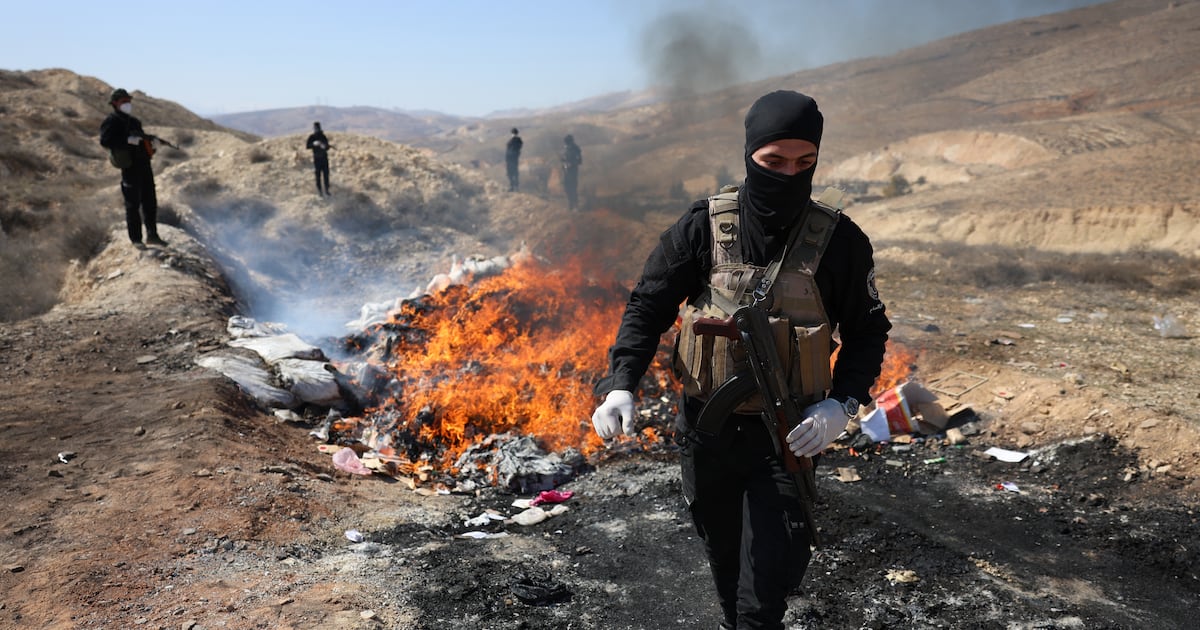Undoubtedly, Syria is a changed country. To take just one example, last week interim President Ahmad Al Shara – a leader of an armed group – travelled to Moscow to meet the leader of the Russian Federation, a country whose armed forces spent years targeting Mr Al Shara and his fighters. It is likely that Mr Al Shara’s predecessor Bashar Al Assad, who fled to Russia when his regime fell, was sat only kilometres away from this once-unthinkable encounter. With exiled Syrians moving back to their country, to new opportunities for young people to start up businesses, changes abound.
But as Syria moves forward, some things remain the same. While the state works hard to mend international ties and revive its war-torn economy, those profiting from the manufacture and sale of illegal drugs endure. This cross-border trade, which is inextricably linked with armed gangs and myriad violent crimes, continues to cast a malign shadow not only over Syrian society but the wider Middle East too.
This is not to suggest that the interim authorities have been complacent when it comes to tackling the threat posed by dangerous and addictive substances such as Captagon and crystal meth. In June, Syrian Interior Minister Anas Khattab said the government had seized control of all Captagon laboratories in the country – a major step forward. Nevertheless, the trade persists as evidenced by this week’s reports that Syrian security forces seized about 12 million Captagon pills while breaking up a drug-smuggling network near Damascus, one of the biggest busts in the post-Assad era so far.

Syria seizes 12 million Captagon pills in major drug bust
Undoing years of damage from Syria’s entrenched drugs trade is no easy task, especially for a country tacking various areas of state collapse. There is plenty of evidence that the interim government is going in the right direction – in April, the foreign ministers of Jordan and Syria agreed to step up joint action against drug smuggling.
In August, Syria’s Interior Ministry announced it had established specialist counter-narcotics squads within the security forces. Co-operation with Jordan, Lebanon and Iraq has been instrumental; on Wednesday, Syrian state media reported that more than 100kg of hashish and over a million Capatagon tablets had been seized in a joint operation involving Iraqi law enforcement.
While the state works to mend international ties and revive its war-torn economy, those profiting from illegal drugs endure
But much work remains, particularly as Syria’s drug-producing and smuggling networks fragment and go further underground. Tightening up border controls to stop the chemicals used in drug making from entering the country is a necessary step, as is deepening existing co-operation and intelligence sharing with neighbouring states. Efforts to break up illegal finance networks should go hand in hand with economic incentives that dissuade people from getting involved with the drug trade in the first place. More international technical assistance should be made available to the authorities, including training, state-of-the-art scanning equipment and forensics expertise.
It is clear that although Syria is going through a rapid political and societal transition, problems such as the drug trade are not going to be overcome in a matter of months. Nevertheless, recent counter-narcotics successes across the region mark important progress. This week, the US military said that nearly $1 billion worth of drugs were recently seized from two dhows in the Arabian Sea. Earlier this month Kuwait thwarted an attempt to smuggle pills with a street value of $18 million and in September, Lebanon seized 64 million tablets in one of the largest drug busts in its history.
For Syria, building on such successes and co-operation is key to undoing the damaging legacy of the country’s narcotics trade. It should get the help and support of its neighbours and wider international community to make this happen.
